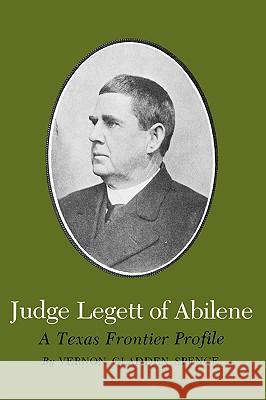Judge Legett of Abilene: A Texas Frontier Profile » książka
Judge Legett of Abilene: A Texas Frontier Profile
ISBN-13: 9781585440177 / Angielski / Miękka / 1977 / 300 str.
When young Kirvin Kade Legett arrived in Buffalo Gap, Texas, in 1879, his principal assets were a good horse and saddle and a license to practice law. When the Texas and Pacific Railroad, building west from Fort Worth, missed Buffalo Gap, the young attorney moved on to Abilene, then a tent city with only two items for sale, "a train ticket to git away or a drink to make you willing to stay." The man and the country were to grow up together.Legett's early clients were buffalo hunters, bone collectors, sheepherders, cattlemen, and farmers, but he eventually handled cases of statewide and even out-of-state importance. Although he refused to seek public office, he had some say about those who did, and most serious candidates for state offices sought his counsel and support. A stock farmer and rancher as well as practicing attorney, Legett was a forceful early advocate of farm diversification and did much to further the development of West Texas agriculture, business, oil exploration, and education. Judge Legett was a pioneer and a man of stature; his life story is, in a real sense, an epitome of the history of West Texas, especially of the Abilene area. By the time of Legett's death, that rowdy railroad town had become a thriving, modern city. Vernon Gladden Spence's biography, based on an extensive collection of private papers, offers a clear and detailed portrait of a man whose energies and talents helped turn a wilderness into a habitable and productive country.











